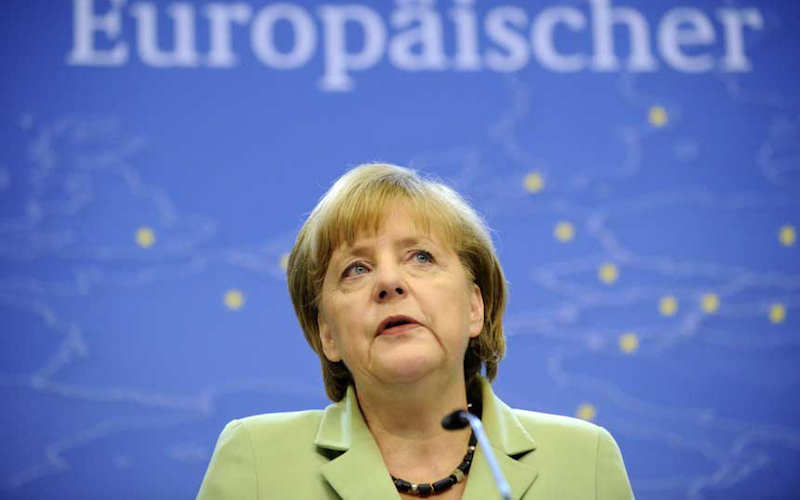
EU Fiscal Union Would be Fatal
Since the implementation in 2001 of the euro as the standard currency for the European Union member states, cases of fiscal mismanagement have abounded across Europe. Since 2009 Greece, Spain, Portugal and Ireland have all admitted to irresponsible deficit spending and had to request bailouts from the International Monetary Fund (IMF) and from the European Central Bank (ECB). These examples have put into question the legitimacy of the union and handed ammunition to both the ‘more’ EU and ‘less’ EU camps. On one side, vociferous EU proponents argue that allowing each European nation to isolate its fiscal policy from the whole is inefficient and produces contagious crises as in the Greek case.
For these critics, the creation of a European Fiscal Union (EFU) is in order, like the American federal one. However, this recommendation is misguided. Firstly, the foundations of the EU would erode if a far-off parliament in Brussels were given central powers, as with the recent case of Brexit. Secondly, while ‘more’-EU proponents might cite the economic success of federal states as the product of their fiscal risk-sharing policies, experts have concluded that common fiscal policies aren’t as effective as previously thought. Thirdly, this EFU would not have the capacity to adequately respond to local problems because of expected political gridlock and its straightjacket fiscal policy.
Democratic Disequilibrium
The EU parliament could never demand from national parliaments of member states that they hand over their power without warranting comparisons to a dictatorship. To make a literary analogy, citizens of member states would feel helpless to an arcane Brussels elite operating like the Inner Party of Oceania in George Orwell’s book 1984, detached from the everyday needs and aspirations of citizens and focusing only on performance, efficiency and control.
In the wake of austerity measures imposed on Greece by a consortium of primarily-German economists, signs and slogans comparing German chancellor Angela Merkel to Hitler or Big Brother flooded the streets of Athens as Greeks were outraged and scared that a foreign power could dictate their country’s fiscal policy. The record unemployment levels and economic contraction following these austerity measures drove the rise of Syriza, the leftist party that promised a program of massive nationalization of private industry and expansion of government health-care that was financially impossible to accomplish. Syriza’s ascension to power retarded Greece’s economic recovery, while Brussels regimented the country’s fiscal policy and left Greeks humiliated and appalled at the little concern shown for their democratic institutions.
Similarly, the recent Brexit case shows that fiscal union could undermine monetary union. Last June, the United Kingdom voted in a referendum to exit the EU. In the months leading to the referendum, key issues revolved around immigration and fiscal policy. One of the main points touted by Nigel Farage, leader of the Leave movement, was that the UK’s National Health Service (NHS) would recuperate £350 million in funding every week, British money previously redistributed by Brussels to other member states. Although voters later found out this number was fabricated, Britain will nonetheless divorce the EU, undermining the union’s legitimacy.
Fudging Fiscal Risk-Sharing
Fiscal risk-sharing is a fiscal policy whereby member states ‘share’ risk by agreeing to transfer a portion of their GDP to struggling regions in times of economic downturn. Fiscal union proponents cite the fiscal union of the United States or of German states as examples that their policy works. However, these comparisons are ahistorical and asymmetrical. US states shared the dollar for nearly 150 years before they agreed to share a fiscal union upon the introduction of the federal income tax in 1913. To expect the EU to achieve the same after 15 years of sharing the euro is inconsistent.
Next, the US federal system of permanent fiscal redistribution is unfeasible in Europe. The US federal government redistributes around 20 percent of state GDP between rich and poor states. But to expect that EU states that do not share a common language, culture or nationalism, to redistribute money along these lines is foolish. German and French taxpayers, for instance, would never accept that a fifth of their national GDP be permanently or even temporarily transferred to Greece or Portugal in the name of fiscal union.
Lastly, not only is such a project unfeasible, it isn’t very effective. Researchers from the IMF have found that the federal systems of redistribution in the US, Canada and Germany only absorb 15 percent of state-level shock in times of a downturn. Instead, private lending, borrowing and investment returns perform the bulk of evening out regional shocks. Though 15 percent is better than 0, better ways to achieve risk-sharing exist and are outlined in the recommendation below.
Local Solutions for Local Problems
Local fiscal policy is also more suited to address local problems. The political elite in Brussels, leading a straightjacket European fiscal policy, would almost certainly let certain peoples suffer in the short term, such as in Greece, in order to achieve an arbitrary long-term vision. Other issues important to local constituencies, such as the environment or women’s representation in executive positions in companies, would be set aside by this governing body in Brussels in the name of competitiveness. For instance, Greece’s forests are threatened under its new austerity plan, with legislation that would legalize construction in previously protected areas. Budgetary flexibility is a must for local governments to deal with local problems, and a centralized fiscal policy would remove this freedom.
Even if this EFU body did take into account local issues, the political gridlock that would plague this body would make any sort of coherent action nearly impossible. Indeed, the diversity of political parties represented in this body would be enormous, ranging from Syriza’s far-left politics to France’s far-right, racist Front National to the Netherland’s neo-Nazi National Alliance. The EFU would find it difficult to deal with so many competing ideologies in order to reach consensus on any single problem.
Recommendation
Instead of proposing a fiscal union, a far more effective capital markets union (CMU) should be put in place in Europe. The ECB is currently reviewing the CMU as part of the EU’s Investment Plan. This CMU would encourage cross-border banking and investment and link Eurozone markets to provide money in regions where investment shortages exist. This would diversify sources of financing to counterbalance the unhealthy preponderance of the banking sector. Similarly, such a policy would also enforce private risk sharing, which is the primary shock absorber in times of economic downturn. ECB executive board member and famed economist Benoit Coeure adds that “the more risk sharing through decentralized markets, also the less risk sharing will be needed through public dimension.” The European economic bloc would emerge more solid and competitive, while the EU would avoid much of the political objections to a fiscal union.
